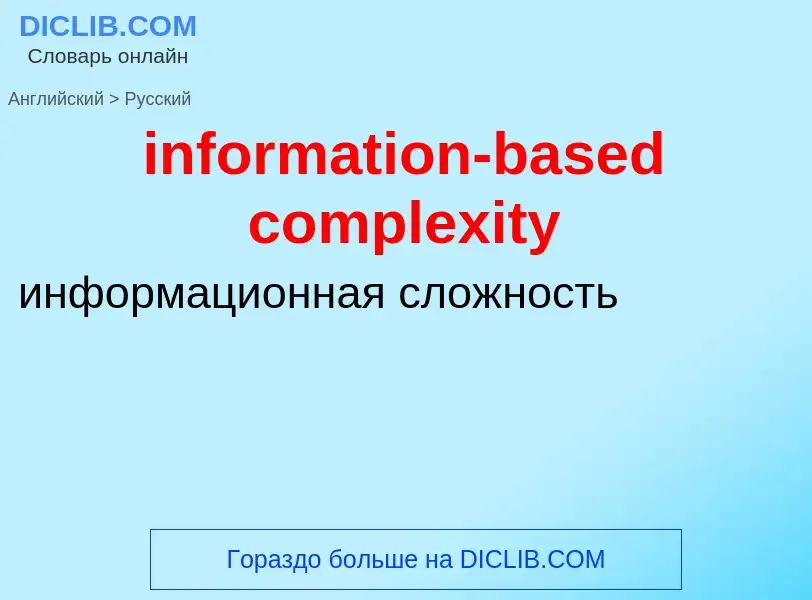Vertaling en analyse van woorden door kunstmatige intelligentie ChatGPT
Op deze pagina kunt u een gedetailleerde analyse krijgen van een woord of zin, geproduceerd met behulp van de beste kunstmatige intelligentietechnologie tot nu toe:
- hoe het woord wordt gebruikt
- gebruiksfrequentie
- het wordt vaker gebruikt in mondelinge of schriftelijke toespraken
- opties voor woordvertaling
- Gebruiksvoorbeelden (meerdere zinnen met vertaling)
- etymologie
information-based complexity - vertaling naar russisch
- algorithmic complexity
- arithmetic complexity
- cipher-breaking complexity
- circuit complexity
- combinational complexity
- communication complexity
- computational complexity
- correlation-immunity complexity
- cryptoanalitic complexity
- deterministic complexity
- exponential complexity
- exponential time complexity
- first order complexity
- functional complexity
- information-based complexity
- intractable computational complexity
- Kolmogorov complexity
- linear complexity
- maximal order complexity
- multiplicative complexity
- polynomial complexity
- polynomial time complexity
- quadratic complexity
- second order complexity
- software complexity
- space complexity
- state complexity
- stochastic complexity
- structural complexity
- time complexity
- time-space complexity
- worst-case complexity
- Ziv-Lempel complexity
математика
асимптотическая сложность
Wikipedia
Information-based complexity (IBC) studies optimal algorithms and computational complexity for the continuous problems that arise in physical science, economics, engineering, and mathematical finance. IBC has studied such continuous problems as path integration, partial differential equations, systems of ordinary differential equations, nonlinear equations, integral equations, fixed points, and very-high-dimensional integration. All these problems involve functions (typically multivariate) of a real or complex variable. Since one can never obtain a closed-form solution to the problems of interest one has to settle for a numerical solution. Since a function of a real or complex variable cannot be entered into a digital computer, the solution of continuous problems involves partial information. To give a simple illustration, in the numerical approximation of an integral, only samples of the integrand at a finite number of points are available. In the numerical solution of partial differential equations the functions specifying the boundary conditions and the coefficients of the differential operator can only be sampled. Furthermore, this partial information can be expensive to obtain. Finally the information is often contaminated by noise.
The goal of information-based complexity is to create a theory of computational complexity and optimal algorithms for problems with partial, contaminated and priced information, and to apply the results to answering questions in various disciplines. Examples of such disciplines include physics, economics, mathematical finance, computer vision, control theory, geophysics, medical imaging, weather forecasting and climate prediction, and statistics. The theory is developed over abstract spaces, typically Hilbert or Banach spaces, while the applications are usually for multivariate problems.
Since the information is partial and contaminated, only approximate solutions can be obtained. IBC studies computational complexity and optimal algorithms for approximate solutions in various settings. Since the worst case setting often leads to negative results such as unsolvability and intractability, settings with weaker assurances such as average, probabilistic and randomized are also studied. A fairly new area of IBC research is continuous quantum computing.


